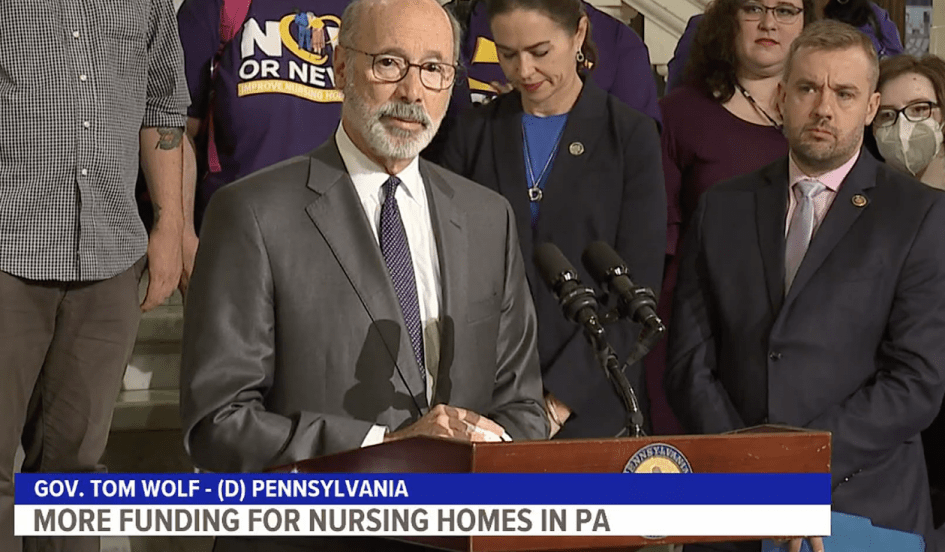In July 2022, Pennsylvania Governor Tom Wolf and the state’s legislature reached an agreement to boost staffing levels at nursing home facilities. The state will distribute nearly $300 million to nursing homes, representing a roughly 20 percent increase in Medicaid rates—the first substantial increase in nearly a decade. The money should increase worker salaries, staffing levels, and retention while stabilizing the facilities’ finances and improving the quality of care.
A team of UMass Boston gerontologists are celebrating Pennsylvania’s decision, which comes a little less than two years since the researchers made the case for the additional funding in their report, “What Is Happening to Pennsylvania’s Nursing Homes?” The LeadingAge LTSS Center @UMass Boston study, funded by the Jewish Healthcare Foundation, detailed the financial struggle and other challenges facing the state’s nursing homes.
“It’s pretty exciting to see this outcome,” says Elizabeth Simpson, a doctoral student who co-authored the report along with fellow student Molly Wylie; Marc Cohen, gerontology professor and co-director of the LTSS Center; and UMass Boston gerontology professor Edward Miller. “It’s great to know that all of our research didn’t just go into the ether, that it can actually make a difference.”
Distilling large amounts of data from numerous sources into a concise report, the researchers detailed the multiple challenges that nursing homes in Pennsylvania face: residents are entering the facilities sicker and poorer, with more medically complex diagnoses while relying more on Medicaid for payments, at the same time as overall staff hours and compensation for direct care workers have remained relatively unchanged.
“The growing gap between what facilities need, as reflected in charges, and the Medicaid reimbursement rate has come at a time when nursing homes are being asked to care for an increasingly complex and frail mix of residents,” says Cohen. “Nursing home services represent a critical component in Pennsylvania’s continuum of care. Our study demonstrated that more needs to be done to support them.”
The Jewish Healthcare Foundation funded a documentary, What COVID-19 Exposed in Long-Term Care, in addition to the LTSS Center report. Over the last two years, through the worst of the pandemic, advocates working through the PA Health Funders Collaborative used both the film and LTSS Center study to make the case for more state funding for nursing home facilities.


1 Pingback